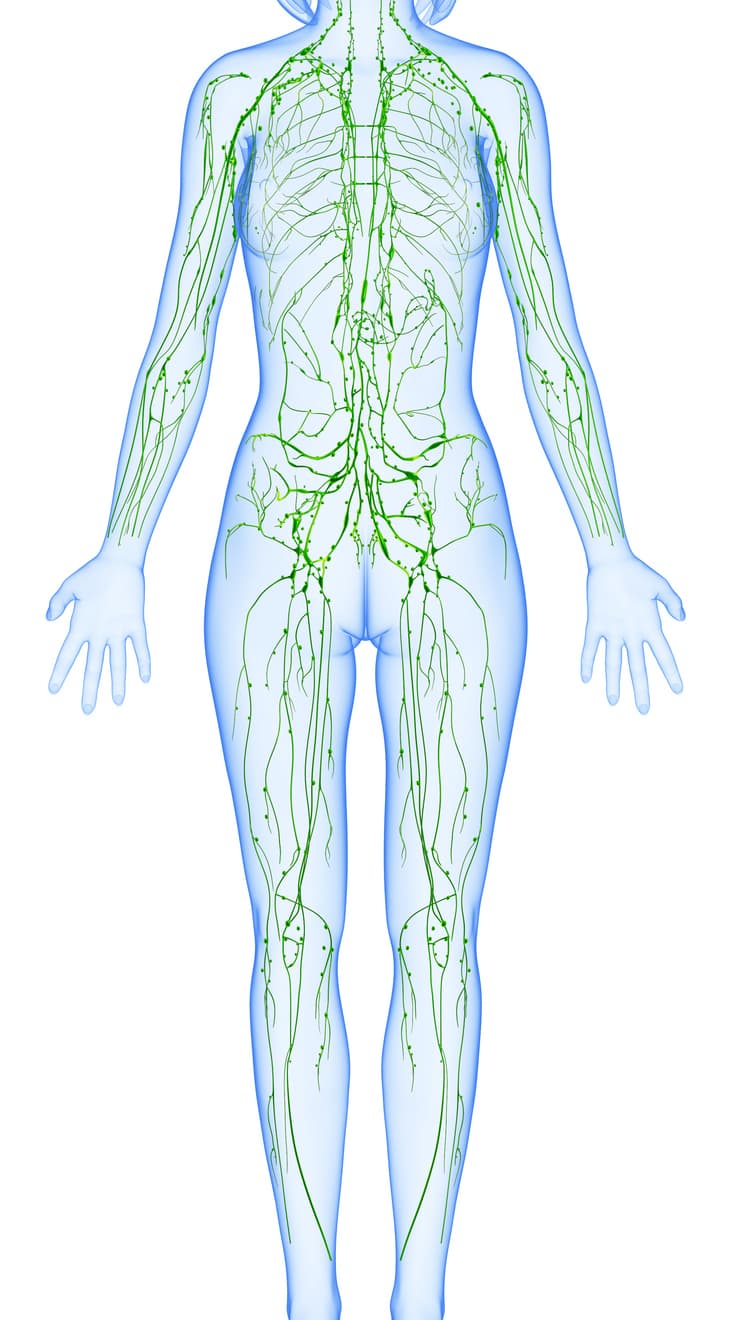Dynamic Lymphatics
Lymphatic Drainage Therapy
The Lymphatic System
The lymphatic system consists of a network of organs and tissues that help the body shed waste and toxins. Its primary function is to carry lymph, a colorless fluid containing white blood cells critical to fighting infections, to all parts of the body. The method of transportation is a network of lymphatic vessels similar to the capillaries and veins that circulate blood. Lymphatic vessels carry lymph to the lymph nodes, which serve as filters. The human body contains several hundred lymph nodes; some are near the surface of the skin, but others are located much deeper.
